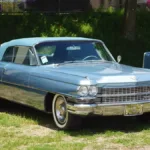If there is a petrol leak within your car, it not only produces an alarm but also danger. Whether it will be a faint smell of petrol or a particular drip below your vehicle, it is something that calls for an immediate response. But why? And how can you fix the leak? Let us delve into the possible causes and their corresponding solutions regarding car petrol leaks.
Introduction
Indeed, there can’t be any denial of the fact that even a minor problem such as a petrol leak can become a nightmare for any car owner. Whether it is an insignificant trickle or a more significant spill, the outcome of negligence can be calamitous. So relax, identifying and rectifying a petrol leak is not as complicated as you must be thinking, and that is precisely what we will discuss in this article.
You would know the causes of petrol leaks, some quick fixes, and prevention tips in case you are ever asking yourself, “Why is my car leaking petrol?”
What Are the Symptoms of a Petrol Leak?
Before diving into the reasons behind petrol leaks, it’s essential to know what to look out for. Here are some telltale signs:
Fuel Smell Inside or Around the Car
If you catch a strong whiff of petrol either inside your car or as you approach it, there’s a good chance you have a fuel leak. This is especially true if the smell persists even after turning off the engine.
Puddles or Stains Under the Vehicle
A more obvious symptom is spotting a wet patch, puddle, or stain under your car after it’s been parked for a while. If this happens regularly, it’s time to investigate further.
Why Petrol Leaks Are Dangerous
Petrol is highly flammable, and a leak can lead to hazardous situations if left unattended. Here are some major reasons why petrol leaks should be fixed immediately:
Fire Hazards
Leaking petrol increases the risk of a fire, especially if it comes into contact with a spark or the car’s exhaust system.
Environmental Harm
Petrol leaks can damage the environment by contaminating the ground and water sources.
Wasted Fuel = Wasted Money
On top of safety concerns, leaking petrol means you’re wasting money—your fuel efficiency takes a hit, and you’ll find yourself visiting the pump more often.
Common Causes of a Car Leaking Petrol

There are several potential reasons your car might be leaking petrol. Understanding these causes can help you diagnose the issue faster:
Damaged Fuel Tank
Over time, your car’s fuel tank can develop rust, cracks, or even small holes, especially if it’s exposed to harsh weather conditions.
Worn-Out Fuel Lines
The fuel lines that carry petrol from your tank to the engine are vulnerable to wear and tear. Over time, they can crack, corrode, or develop holes.
Faulty Fuel Injectors
Fuel injectors control how much fuel goes into your engine, but they can start leaking if the seals or O-rings fail.
Loose or Damaged Fuel Cap
This might sound minor, but a loose or damaged fuel cap can allow petrol vapors to escape, leading to leaks and reduced fuel efficiency.
Damaged Fuel Tank: What to Look For
If you suspect your fuel tank is the source of the leak, here are some things to look out for:
Rust and Corrosion
Older vehicles are more prone to rust and corrosion, which can weaken the tank over time, leading to leaks.
Punctures or Cracks
Road debris, like stones or sharp objects, can puncture your fuel tank, especially if it’s made from metal.
Fuel Line Leaks: The Hidden Danger
Fuel line leaks are a bit harder to spot since the lines run under the car. Here’s how to identify them:
How to Identify Fuel Line Issues
You may notice a fuel smell or see wet patches along the underside of the vehicle.
Why Old Hoses Are More Prone to Leaks
Rubber hoses degrade over time, leading to cracks and leaks.
Faulty Fuel Injectors: A Common Culprit

Fuel injectors can develop leaks around their seals or O-rings. Here’s what to do if they’re causing problems:
Leaking Seals and O-Rings
Over time, the seals can wear down, allowing petrol to leak from the injector.
How to Replace Faulty Injectors
Replacing fuel injectors is a job best left to professionals, but if you’re mechanically inclined, it’s possible to DIY with the right tools.
The Problem with Loose or Damaged Fuel Caps
It’s surprising, but a simple fuel cap issue can lead to noticeable fuel loss. Always check this first when you smell petrol:
How a Simple Cap Can Cause Big Problems
If your fuel cap doesn’t seal properly, petrol vapors can escape, and over time, you’ll lose fuel.
Easy Fixes for This Issue
Replacing a fuel cap is inexpensive and can be done in minutes. Simply buy a new one from an auto parts store.
How to Identify a Petrol Leak (Step-by-Step)
Here’s how to find the source of a petrol leak in your car:
- Visual Inspection – Look for any wet spots or stains around the fuel system.
- Checking for Smells – Follow your nose to where the smell of petrol is strongest.
- Using Leak Detection Dye – You can buy a leak detection dye to find even the smallest of leaks.
Short-Term Solutions for a Petrol Leak
If you need a quick fix while waiting for a repair, consider these options:
Sealing with Epoxy
You can use an epoxy resin to temporarily seal a crack in the fuel tank or fuel line.
Using a Petrol Leak Sealant
There are commercial products available that temporarily stop petrol leaks until you can get a professional fix.
Long-Term Solutions and Repair Options
To permanently fix a petrol leak, you’ll need to replace the damaged components. Here’s what to expect:
Replacing Damaged Parts
Fuel tanks, lines, and injectors might need replacing if they’re beyond repair.
Seeking Professional Help
For serious issues, it’s always best to consult a professional mechanic.
Preventing Future Petrol Leaks
Prevention is always better than cure. Here’s how you can avoid future leaks:
Regular Maintenance Tips
Make sure you check your fuel system regularly during routine maintenance.
Inspecting Fuel System Components
Ensure all fuel system parts, like the fuel tank, lines, and injectors, are in good condition.
What to Do If You Detect a Petrol Leak
If you suspect a petrol leak, don’t panic—just follow these steps:
Safety Precautions
Avoid driving your car, especially near open flames or heat sources. Petrol is highly flammable.
Calling for Professional Assistance
If you’re unsure how to fix the issue, call a mechanic or a tow service.
How Much Will a Petrol Leak Repair Cost?
The cost of fixing a petrol leak varies depending on the cause. Here’s a rough breakdown:
- Fuel Tank Replacement: $500–$1,000
- Fuel Line Repair: $200–$600
- Fuel Injector Replacement: $300–$700
Conclusion
A petrol leak is something you can never keep quiet about. In fact, it can result in dangerous situations and unnecessary costs if not given immediate attention. Proper identification of the issue can be anything from a damaged fuel tank to worn-out fuel lines or even something as simple as a loose fuel cap. If you take proper care and maintain your car according to that, then you can do without those unwelcome petrol leaks in your car for years to come.
FAQs
- Can I drive my car if it’s leaking petrol? No, driving a car with a petrol leak is dangerous and increases the risk of fire.
- What causes fuel injectors to leak? Fuel injectors can leak due to worn seals or O-rings.
- How do I know if my fuel cap is leaking? A strong petrol smell near the fuel tank area is a common sign of a leaking fuel cap.
- Can a petrol leak damage my engine? While a leak itself may not directly harm the engine, running out of fuel due to the leak can cause engine damage.
- How often should I check my fuel system for leaks? It’s a good idea to inspect your fuel system during regular vehicle maintenance, typically every 6 months.
Also Read : Why Your Steering Wheel Shakes at High Speeds







